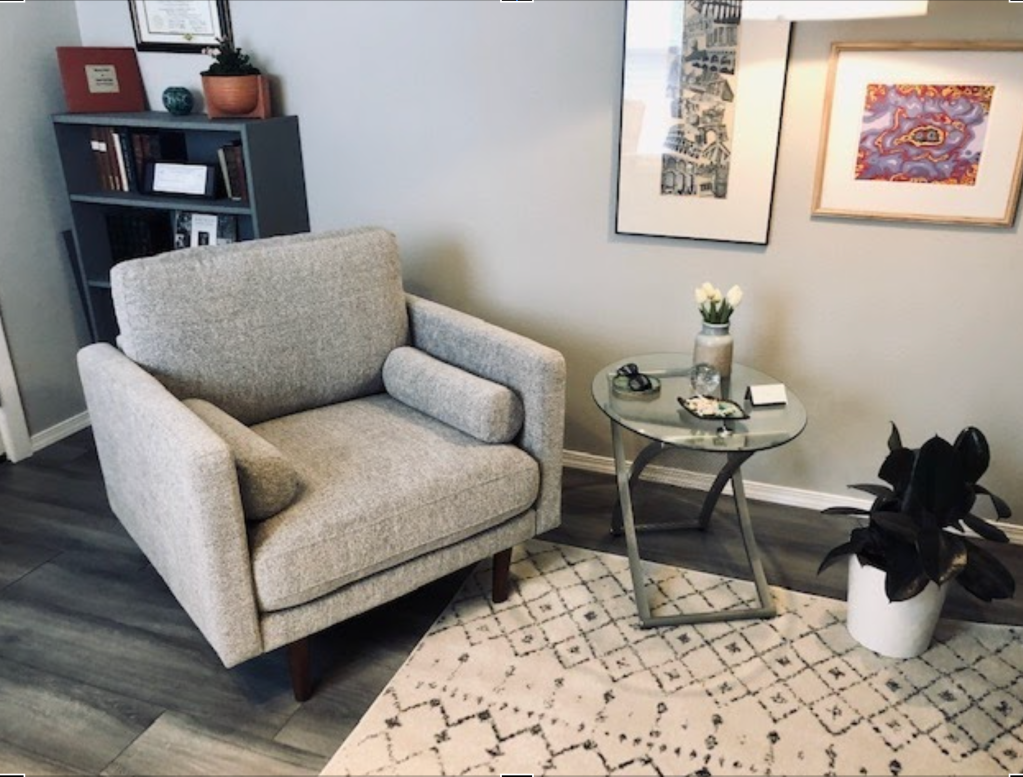Seen From Seaside: Gearhart therapist buoys clients amid wave of virus anxiety
Published 1:47 pm Friday, August 7, 2020

- Inside Delores Sullivan’s Gearhart therapy office.
Slip into By the Way and visitors will find cards, coffee and gifts.
But in an area carved out in the rear of the building, Delores Sullivan has redesigned the space to accommodate patients at her new therapy office.
She moved to Gearhart two years ago with her husband and said she saw a need for therapy options. “A lot of the other therapists told me, ‘Boy, we could really use some good therapists,’” she said. “But I kept thinking there has to be a good space if I’m going to come back. It has to feel right. I wanted to find the right place.”
The Gearhart location offers the kind of low-key space Sullivan desired.
“Coffee, therapy and the beach — it’s perfect. I just love it, and the good energy here,” she said.
Sullivan grew up in rural Missouri and moved to Portland when she was 21 with her boyfriend.
“I’ve had three distinct careers in 50 years, all overlapping,” she said. “One in nursing, next in fashion business as a model, then model scout, and model agent and finally therapist and teaching.”
She was president of the Oregon Adoptive Rights Association when Rolling Stone publisher Jann Wenner assigned feature writer Randall Sullivan to profile her in 2000.
She was involved in Oregon adoption law, working to give adult adoptees the right to their original sealed birth certificates through Measure 58.
The writer was struck by her, describing her in the article as “not only beautiful but articulate, passionate and charming as well.”
“It was a random meeting at 1:30 in the afternoon at the Brasserie Montmartre and there was nobody there but me and him,” she recalled. “He recorded me for four hours and then he met me again and recorded me four more.”
While their lives were complicated at the time, they began a long relationship and married in October 2018. She practiced therapy and taught in the psychiatry departments at Portland State University, Oregon Health & Science University and at the University of North Carolina at Charlotte Counseling Center for three years before retiring.
With 23 years in practice, Sullivan said she wants to create a place where people feel safe.
“When someone comes to therapy they want to feel heard,” she said. “They want to know someone cares and can help them. They want to talk to someone who has the experience and skills to be present to their difficulties and who can bring about healing and resolution.”
She said therapy is a unique human relationship based on compassion, empathy and mutual collaboration.
Sullivan works with those seeking help with depression, anxiety, stress, family conflict and trauma. Therapy can be short term or long term. “There’s nothing they can’t talk about with me here,” she said.
Particularly during the coronavirus pandemic, she said people are feeling a lot of stress in their relationships.
“People are very scared, not knowing what’s going on,” she said. “The fragmentation of how things have been managed has been very scary to people.”
While telephone or video therapy is an option, she said people have preferred to come in. “I think as long as it’s safe and people are monitored, it’s better in person. People need the human connection and they particularly need it right now because they’re feeling isolated.”
“The goal is to give them an anchor, to stabilize them,” she said. “You can’t work through any kind of traumatic feelings until you stabilize them, so I try to look at them holistically. What is their health? Are they sleeping? Eating? Are they walking on the beach? Are they getting some connection, FaceTime or telephone with people they care about?”
When not working at her practice, Sullivan spends time with her grown children, stepchildren and seven grandchildren.
“I love to go to the beach,” she said. “I love seafood, fish and chips. I love the food here. I love the people in Gearhart, they’re very interesting. It’s a very eclectic mix of people, that’s why it’s fun to have a practice here. Here I can flex, if people want to see me on a Friday morning, I can work that.”
One of the unique challenges of practicing in a small community is chance encounters with clients are inevitable. “But I manage confidentiality the same way I would in Portland or Charlotte. Outside of here I’m not going to say, ‘Hey, what did you think of therapy the other day?’”
“We’re in such a unique shift,” she said. “I believe between the way the world was prior to COVID and the way we’re going to be now, it will never be the way it was.”





